10 Reasons You Want an Offshore Bank Account in 2017
An offshore bank account can open up new investment, privacy, and protection options. An international account gives you access to a new world of possibilities and higher returning investments not available in the United States. Here are my top 10 reasons you want an offshore bank account in 2017.
Each of our clients has their own reasons for putting some of their wealth in an offshore bank account. You may want to plant that first flag offshore, diversify out of the United States, or protect your cash from civil creditors. You might want a secure financial haven from political or economic uncertainty or the advanced offshore tax and financial planning options only available offshore.
Whatever your reasons, we can assist you to open an offshore bank account that’s designed to help you manage, protect and grow your wealth. We work with a number of banks around the world and can introduce you to the one that best fits your needs.
We also offer a wide range of company formation and international asset protection structures. We can place your offshore bank account behind the impenetrable walls of an asset protection trust or set up a basic offshore LLC or corporation. If you’re operating a business, we also offer business bank accounts and offshore business planning.
No matter your situation, we have a custom offshore banking solution.
So, without any more adue, here are the 10 reasons you want an offshore bank account in 2017.
1. Plant your first flag offshore
The first step in building a life abroad is to open an offshore bank account. It’s the first of many international flags you should plant to prepare your exit plan.
And an offshore bank account is the lowest cost flag. If you search out a bank and open the account on your own, you will pay nothing. If you hire a banking expert to open the account on your behalf, it might cost a few hundred dollars.
Major flags, like an offshore company cost thousands of dollars. The biggest flag, a second passport, might cost hundreds of thousands. So, start with a personal offshore bank account, get your bearings, and then devise a long term international diversification strategy.
An offshore bank account is the first step in moving you and/or your assets abroad. Spend the time to do it right. Find professionals you feel comfortable with and a bank that fits your investment and transactional needs.
2. Asset protection
The most basic form of asset protection is moving some cash into an offshore bank account and away from future creditors.
And an offshore bank account might prevent litigation. Most civil cases are taken by lawyers on contingency… they get paid a percentage of they they take from you.
Before beginning a case, the lawyer will search for your assets. If you’re a soft target, he’ll attack. If he finds no assets, or that collecting on a judgment will be a long and costly battle, he might not bring the case… he’ll move on to an easier payday.
Again, an offshore account is the most basic form of asset protection. You might decide to increase that with an LLC, corporation, foundation, or an offshore asset protection trust.
3. Take some of your capital off the table and out of play
U.S. stocks are riding high and investors are excited about the prospects of a Donald Trump presidency. We expect taxes to decrease, business to expand, and America to “win again.”
Well, what if things don’t go as planned? What if there are bumps along the way? What if there are growing pains on the road to making America great again? Are you diversified internationally as a hedge against risk at home?
According to Oxford Economics, President Donald Trump will either be a disaster or the best thing ever for the global economy. No matter your political beliefs, you must perceive some level of risk in what will happen when the establishment begins to fight back.
I can’t tell you how to assess this risk, I can only identify the fact that it exists. You might assign a probability of 5%, 15%, 30%, 50%, etc.
Use this risk ratio and place a corresponding amount of your capital into an offshore bank account. Take some of your cash off the table. Leave what you like on red in the United States and fund a nest egg offshore with the rest in case things don’t go exactly as planned.
4. Security from the IRS
If you owe money to the IRS, they can levy your U.S. bank account. The government can also seize your offshore bank account if your bank has a branch in the United States.
An IRS levy doesn’t require any type of court action or special notice. Any IRS agent can empty your account with a few keystrokes if they know where it is… and it’s tied into the U.S. system.
Thus, an offshore plan should focus on offshore banks without U.S. ties.
This is especially true for U.S. expats. If you forget to file your tax returns for a few years, the IRS is likely to prepare them for you based on whatever information is in their computers. The penalties for expats who get out of compliance are very severe… many times larger than those for U.S. residents who make a mistake.
Of course, you must file your U.S. forms and report your accounts. But, if you chose the correct offshore bank, the IRS can’t seize your account. They will know where it is but, so long as you are in compliance, there is nothing they can do to take it away from you.
Warning: the IRS can now revoke your U.S. passport. If you want to open an offshore bank account, you need to act before the government takes away your passport.
5. Get your IRA offshore
An offshore bank account can be used to hold business income, personal savings, and IRA / retirement money. When structured properly, you can move your IRA offshore and maintain the tax benefits of that retirement account.
To do this, you’ll need an offshore IRA LLC and an offshore bank account. The IRA owns the LLC and you are the manager of that LLC and of the bank account.
You’ll have checkbook control over your retirement account and can make whatever investment you like.
6. Currency diversification
As I said, the most basic form of asset protection is an offshore bank account. The most basic hedge against country risk is to hold your cash in multiple currencies.
Many international banks allow you to open accounts in multiple currencies. For example, Capital Security Bank in the Cook Islands gives you 11 currencies with a basic account and 15 more if you invest in a CD.
If you’re looking to diversify your cash or IRA out of the U.S. dollar, the first step is an offshore bank account.
7. Access to higher returning investments
If you’re tired of the miserable returns in your home country, go offshore. An international bank or brokerage account will give you access to significantly higher returning investments than those available in the United States.
Whether you’re trading the foreign markets, buying real estate, or looking for in non-traditional investments, offshore is where the profits are.
For example, the top real estate markets in 2016 were all outside the United States. My favorites are Colombia and Panama, but Singapore, UAE, and Philippines were also hot.
As for non-traditional long horizon investments, our clients have focused on hardwoods.
Since 2014, timber has been where it’s at for the uber rich. According to CNN Money, the 1% are putting hundreds of millions into trees and reforestation products. They’re moving away from the markets in favor of hardwoods.
Some of the foreign tree farms are returning 15% or more. I like Panama and Nicaragua teak, but there are many hardwood programs around the world.
Three reasons I like Panama’s reforestation program are:
- If you’re from a top 50 country, you can get residency for free with an investment of $20,000 in teak.
- You can use your IRA to buy teak in Panama.
- You can buy into an existing farm with 6 or 7 years to go before harvest. The usual teak holding period is 25 years.
8. Build a nest egg offshore for your heirs
Combine an offshore bank account with a foreign trust and you have an excellent asset protection and estate planning tool. These two work together allow you to build a nest egg offshore, away from your creditors, for the benefit of your heirs.
A trust is intended for those who want to put some money offshore to be invested by a foreign wealth manager. You should be giving up control and the capital should be held for the benefit of your heirs.
This nest egg can be passed on tax free if you use your gift tax credits to move it outside of your U.S. estate. It can grow tax free if you add a life insurance policy to the trust. And, unlike a U.S. trust, an offshore trust can last for generations if structured as a dynasty trust.
For these reasons, an offshore trust is by far the most powerful international asset protection tool. A trust is cost effective for those who will hold $2 million or more offshore.
If you don’t want to give up control, you can get many of these same benefits with a Panama Foundation and bank account in Panama.
9. Receive payments from customers who don’t want to wire to the United States
If you’re working as a consultant, or running a business with foreign clients, you’ll find that many don’t want to send payments to the United States. Their banks ask too many questions and they don’t want the headache of dealing with FATCA and other impediments to business our government has created.
The solution is simple: open an offshore bank account in your name or the name of your company. Move the reporting requirements to your side of the ledger, making it easier for your clients to do business with you, with an offshore bank account.
An offshore bank account will improve your sales and help you close deals with those hesitant to interact with the United States.
10. Maximize your freedom of movement and privacy
Pay your international expenses with a debit card linked to your offshore bank account. Use this card for all foreign purchases to maximize your privacy while abroad. Set up a travel account with a foreign airline, such as Copa.com, to keep this data off of U.S. servers.
So long as your offshore account(s) never hold more than $10,000, you will not be required to file a U.S. Foreign Bank Account Report. Stay below this threshold and you need not inform the U.S. government of your offshore bank account.
Note that this $10,000 limit is for all offshore bank accounts combined. If you have 3 foreign accounts, each with $5,000, your total is $15,000 and you must file an FBAR. Also, it’s your highest balance during the year. Even if you have $10,000 in a foriegn account for only one day, you must file an FBAR for that year.
The work-around is to hold a “cash equivalent” offshore, rather than cash. You can avoid the FBAR by purchasing gold offshore. You can buy and hold as much physical gold in your name outside of the United States as you like without filing any kind of report.
Conclusion
I hope you’ve found this article on the 10 reasons you want an offshore bank account in 2017 to be helpful. Please contact me at info@premieroffshore.com or call us at (619) 483-1708 for a consultation. We can setup a U.S. compliant structure or introduce you to a number of international banks.



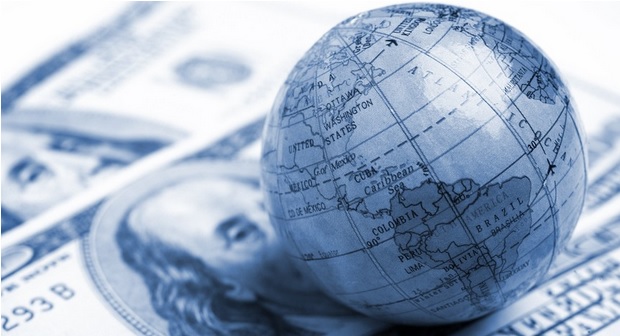


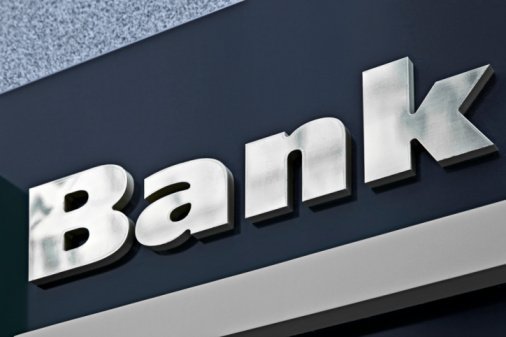


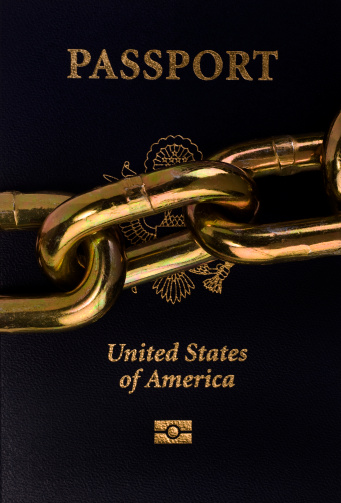
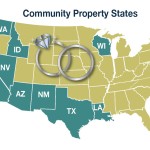
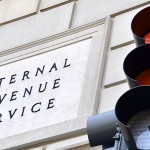
Leave a Reply
Want to join the discussion?Feel free to contribute!